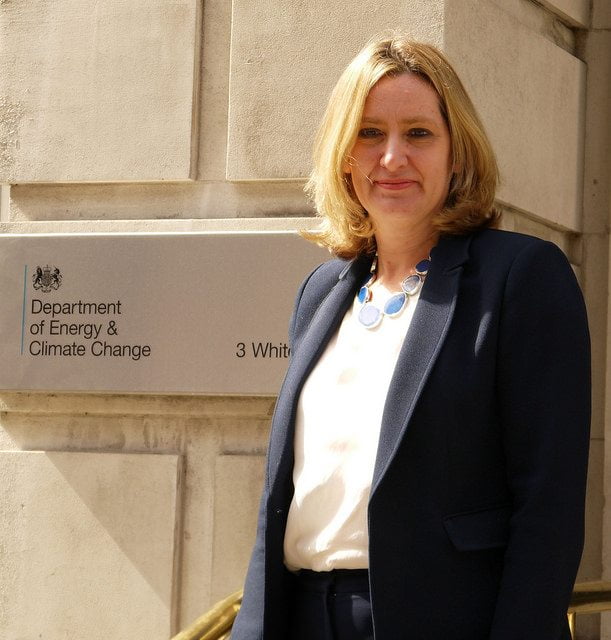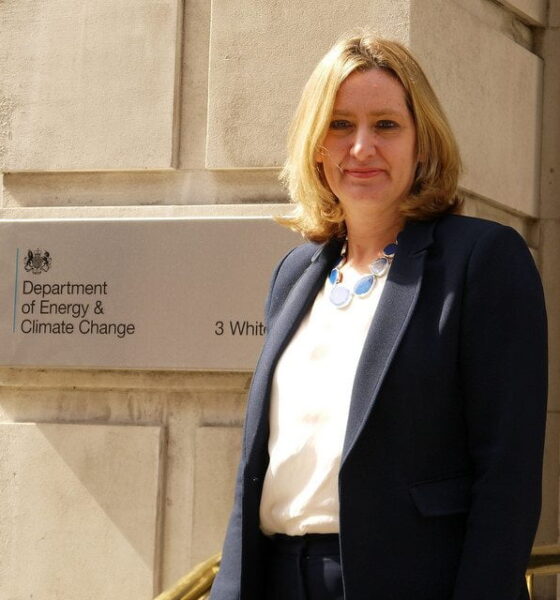

Energy
DECC’s Rudd Urged To Back British Solar In New “Paris Agreement” World
Further to the historic climate agreement that was signed in Paris over the weekend at COP21, the UK Solar Trade Association (STA) is calling on the Chancellor and the Energy Secretary to put their commitments into practice in a decision on support for solar PV in the UK.
The final decision on the Feed-in Tariff for solar and other renewables is widely expected to come later this week [1] and the STA is concerned that this will be too soon to reflect the increased commitments made by countries around the world to reduce emissions including by the UK.
The Paris Agreement increases nation state commitments to restrict climate change to ‘well below’ 2C and to ‘pursue efforts’ to keep warming to just 1.5C. The UK’s carbon budgets are currently predicated on a 2C temperature rise limit and the Committee on Climate Change has already said it will be advising Government on the implications for the carbon budgets of the Paris Agreement. Lower carbon budgets will demand accelerated domestic action.
The STA has been extremely concerned by proposals to reduce support for solar to just £7 million over the next 3 years, which would decimate the British industry. The extreme nature of the proposals shocked solar companies and has already led to an estimated 6,000 job losses in the sector. Opposition to the proposals has come from every sector of society, including the Church of England, the National Farmers Union, the CBI and the Mayor of London.
Leonie Greene, Head of External Affairs at the Solar Trade Association said: “The critical importance of solar power in tackling climate change came up time and time again at the Paris conference. Has the British Government now realised the value of backing its superb domestic solar industry within an International Solar Alliance expected to mobilise $1trillion of investment in solar power?”
“Amber Rudd herself has been citing solar power as an example of a technology that can rapidly drop in cost, but that depends on a mass market and effective national policies. Now that Amber Rudd and her team are back in London, the next thing they have to do is decide on Feed-in Tariffs for solar. Will they go ahead with their proposed extreme cut of up to 87% or will they choose a more gradual, tapered reduction in support consistent with the actual fall in the costs of installed solar?”
“The post-Paris world demands accelerated domestic action. The first big decision to be taken in the post-Paris world could set the tone for some time to come. We urge the UK to put its hard work in Paris into practice back in London.”
The Confederation of British Industry has backed the Paris Agreement and said that “businesses will want to see domestic policies that demonstrate commitment to this goal and none more so than in the UK”. [2] Their call has been echoed by a wide range of leading business executives.
The decision on the Feed-in Tariff Review will be a first test of whether the direction of travel on energy policy has changed post-Paris.


 Environment12 months ago
Environment12 months agoAre Polymer Banknotes: an Eco-Friendly Trend or a Groundswell?

 Features11 months ago
Features11 months agoEco-Friendly Cryptocurrencies: Sustainable Investment Choices

 Features12 months ago
Features12 months agoEco-Friendly Crypto Traders Must Find the Right Exchange

 Energy11 months ago
Energy11 months agoThe Growing Role of Solar Panels in Ireland’s Energy Future





























